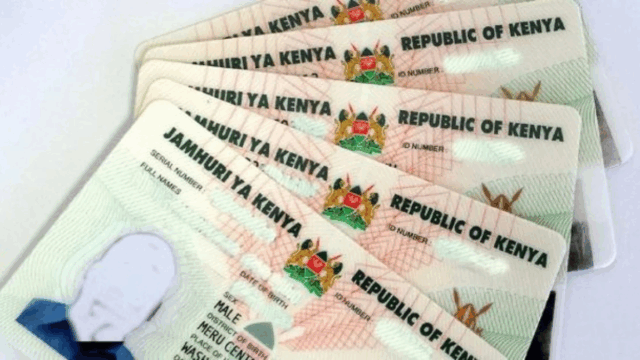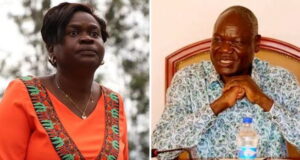Kenya is ready to embrace a more inclusive and efficient voting system, and using national identity cards as the main document for elections is the bold step that can take us there. The idea that every eligible citizen with a valid ID should be able to vote without the need for a separate voter card is not only logical, it is fair and democratic.
It simplifies the process, removes unnecessary barriers, and promotes a culture where voting is a right accessed easily by all, not a privilege burdened by extra bureaucracy.
Every Kenyan who turns eighteen already begins the process of civic participation by applying for an ID. Linking this document directly to biometric voting technology makes sense. It becomes automatic registration. The moment a citizen receives their ID, they are, in effect, ready to vote.
There is no need to wait for a separate mass registration exercise that often leaves behind young people, those in remote areas, and vulnerable groups. With full biometric verification, the concerns about duplication, fraud, and impersonation can be addressed.
A properly maintained population register linked to voting technology ensures that only one vote is cast per person, and only by those eligible to do so.
Registration for ID cards will now supersede the traditional continuous voter registration. This is a welcome shift that streamlines the process and eliminates duplication of effort. Rather than waiting for voter registration drives, Kenyans will only need to secure their identity card to be included in the electoral roll.
This means the electoral register will grow automatically and in real time, creating a living database that is more accurate, inclusive, and representative of the country’s voting population.
This new approach also gives us the opportunity to vote where we are, instead of being limited to the constituency or polling station where we were originally registered. It acknowledges the reality of a mobile society where people move for work, school, or family, and still deserve the full right to participate in elections.
Once a voter is identified biometrically at any polling center, they can never be identified or allowed to vote elsewhere. The system will immediately confirm that they have already voted, preventing duplication and reinforcing the one-person-one-vote principle.
This system also levels the playing field. It eliminates regional and seasonal disparities in voter registration. In the past, voter listing exercises have been influenced by political interests, with some regions receiving more attention and resources than others.
Using ID cards equalizes the system because it recognizes the universal nature of citizenship. A Kenyan in Wajir and a Kenyan in Nyeri would have the same pathway to the ballot box.
Concerns about misuse can be addressed with strong oversight, clear legal frameworks, and independent auditing. What matters most is public confidence in the process.
That confidence grows when the electoral system is simple, open, and grounded in the everyday documents people already possess. Identity cards already serve as proof of age, citizenship, and place of residence.
They are required for almost every official function, from education and employment to access to government services. Bringing voting under the same umbrella makes the process familiar and accessible.
The Independent Electoral and Boundaries Commission must ensure that any transition to ID-based voting is accompanied by public education, widespread communication, and technical preparation. But the direction is right.
It aligns with global best practice, advances digital democracy, and affirms every Kenyan’s right to vote without jumping through additional hoops. Our democracy matures when access to the ballot becomes as simple as carrying the ID card that already defines who we are.















